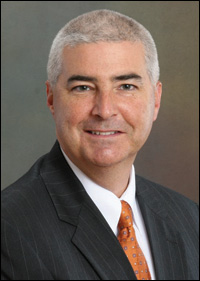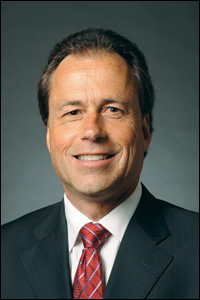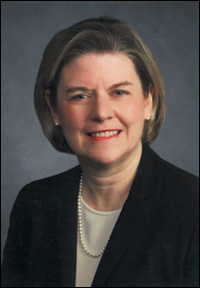Firm holidays looking happier
By: Jack Zemlicka, [email protected]//November 10, 2010//

With the traditional holiday bonus time rapidly approaching, many attorneys and staff are likely wondering whether they will again end up with coal in their stockings.
But several Wisconsin firms are planning a more prosperous end to 2010 for employees after several years of stagnant paychecks due to the recession.
Milwaukee-based Whyte Hirschboeck Dudek SC beat the holiday rush by reinstating salary increases for staff and associates last month after two years of holding the line or cutting wages.
After a record year, in terms of revenue, Chief Executive Paul J. Eberle said the decision was made to implement merit-based salary bumps. Employee evaluations have been ongoing since the end of the firm’s fiscal year in June.
He also said that discretionary bonuses, which are awarded in June, are slowly creeping closer to pre-recession levels.
“We did have some very nice bonuses,” Eberle said. “My impression is people are seeing a better climate this year than one or two years ago.”
The same is true at Reinhart Boerner Van Deuren SC, where performance-based and year-end bonuses are on the rebound for associates and staff, according to firm chairman Jerome M. Janzer.
Bonus opportunities for associates have continued throughout the recession for Foley & Lardner, according to Nancy J. Sennett, managing partner in the Milwaukee office, and they have not resorted to salary reductions.

But she is “optimistic” that the firm will reinstate raises for staff early next year after the recession essentially froze pay increases.
Sennett said an overall positive financial outlook combined with a need to reward and retain quality employees factored into the decision.
Paul A. Johnson, chairman of Lathrop & Clark LLP (www.lathropclark.com) in Madison, said the midsize firm has continued with its merit-based bonuses for associates during the recession, but this year altered its approach to staff raises.
Rather than across-the-board pay increases, the firm created a pool of money from which the firm administrator will designate bonuses based on merit and performance.
Johnson said typically the firm issues annual raises to staff and the alternative approach to year-end compensation was driven by the poor economy.
Regionally, law firms in the Midwest generally endured the economic downturn better than those in larger coastal cities, like New York or Los Angeles, said Altman Weil (www.altmanweil.com) legal consultant Jim Cotterman.
That has allowed some in Wisconsin to either reinstate raises and holiday or performance-based bonuses.
“Associates said ‘okay, we’ll tighten our belts now,’ with the understanding that the quid pro quo is money should be there when everything lines up,” Cotterman said. “If firms can’t meet those expectations, it’s because they didn’t do as well.”
Janzer agreed that Wisconsin firms are coming out of the recession in better economic shape because they didn’t suffer the same kinds of losses when certain practice areas tanked.

He said larger firms in larger cities that had a high concentration of attorneys doing mergers and acquisitions suffered when that market dried up.
“We are fortunate that we haven’t had those kinds of dramatic swings here,” Janzer said.
But raises and bonuses are far from universal, even as firms’ bottom lines recover.
Anne Idhe, President of the Wisconsin Association for Legal Professionals, (www.wisconsinalp.org) still expects a very tight end of the year in terms of bonuses and benefits for legal staff, as some firms have yet to reinstate increases.
“It is my understanding that several law firms still have a freeze at the moment on hiring and salary increases,” she said. “I know that many of our members no longer get their dues paid to belong to professional associations and this is affecting membership greatly and it is a concern in our association nationwide.”
While Reinhart revenues have been strong, Janzer said that is due in part to the firm implementing some cost controls, such as limiting out of town travel and CLE marketing, at the outset of the recession.
Eberle said Whyte Hirschboeck Dudek also took a preventative approach with the thought that compensation would improve with the economic climate.
“If you go back three years, nobody knew what was happening or how bad things were going to get,” he said. “There may be some more troubling news coming, but we got through it okay and you can’t hold things flat forever.”
Jack Zemlicka can be reached at [email protected].
Legal News
- Chicago man sentenced to prison after being caught with ‘Trump Gun’
- FTC bans non-competes
- Gov. Evers seeks applicants for Dane County Circuit Court
- Milwaukee man charged in dismemberment death pleads not guilty
- Democratic-led states lead ban on the book ban
- UW Madison Professor: America’s child care crisis is holding back moms without college degrees
- History made in Trump New York trial opening statements
- Prosecutor won’t bring charges against Wisconsin lawmaker over fundraising scheme
- Republican Wisconsin Senate candidate says he doesn’t oppose elderly people voting
- Vice President Harris to reveal final rules mandating minimum standards for nursing home staffing
- Election workers fear threats to their safety as November nears
- Former law enforcement praise state’s response brief in Steven Avery case
WLJ People
- Power 30 Personal Injury Attorneys – Russell Nicolet
- Power 30 Personal Injury Attorneys – Benjamin Nicolet
- Power 30 Personal Injury Attorneys – Dustin T. Woehl
- Power 30 Personal Injury Attorneys – Katherine Metzger
- Power 30 Personal Injury Attorneys – Joseph Ryan
- Power 30 Personal Injury Attorneys – James M. Ryan
- Power 30 Personal Injury Attorneys – Dana Wachs
- Power 30 Personal Injury Attorneys – Mark L. Thomsen
- Power 30 Personal Injury Attorneys – Matthew Lein
- Power 30 Personal Injury Attorneys – Jeffrey A. Pitman
- Power 30 Personal Injury Attorneys – William Pemberton
- Power 30 Personal Injury Attorneys – Howard S. Sicula











